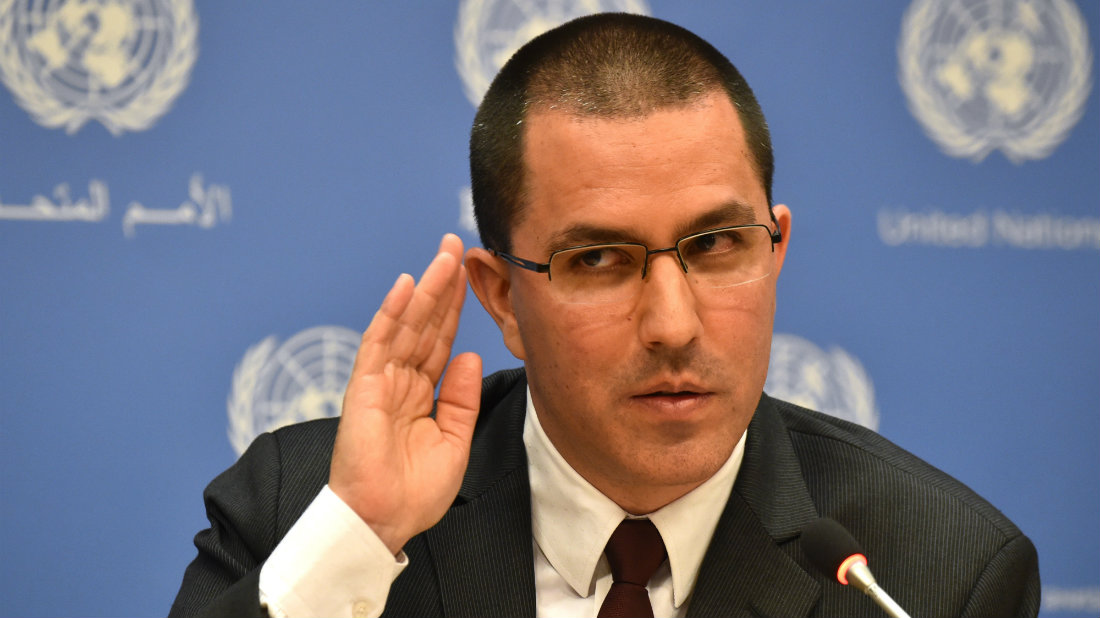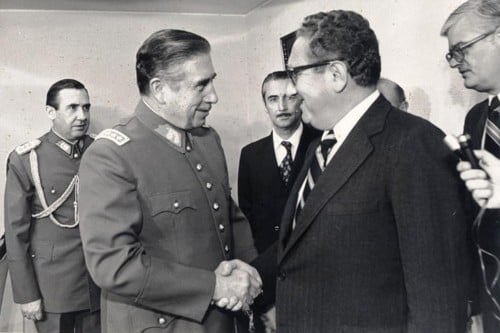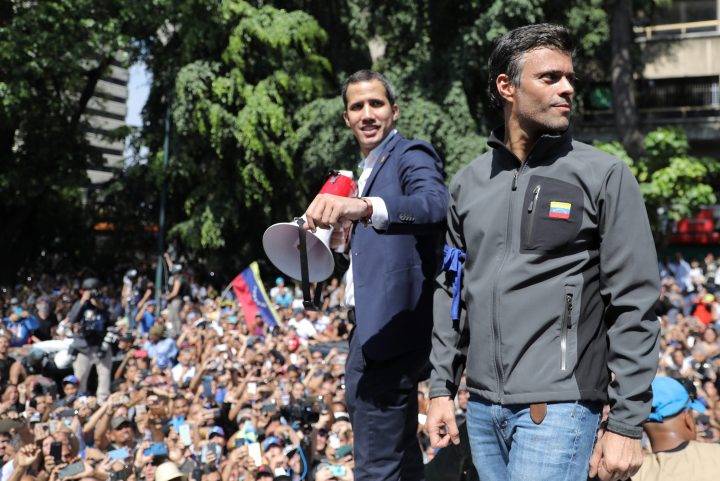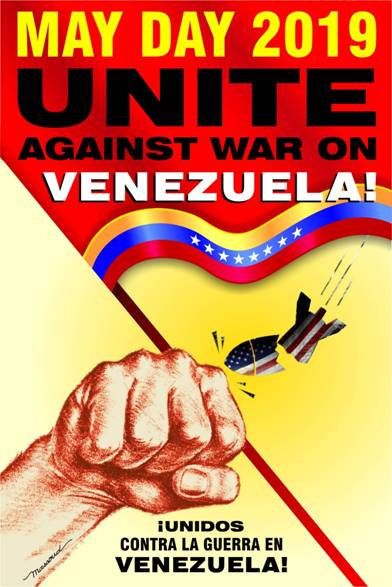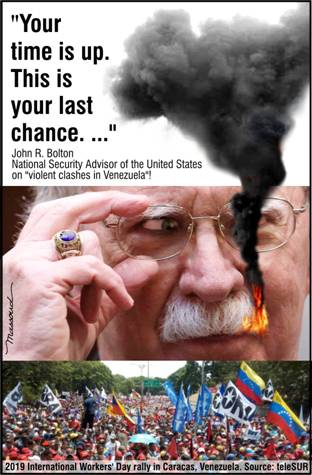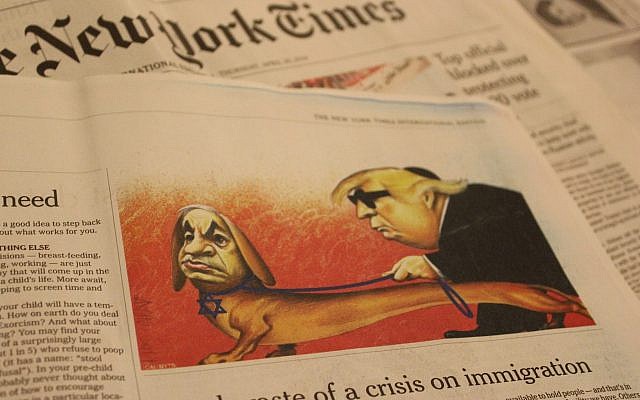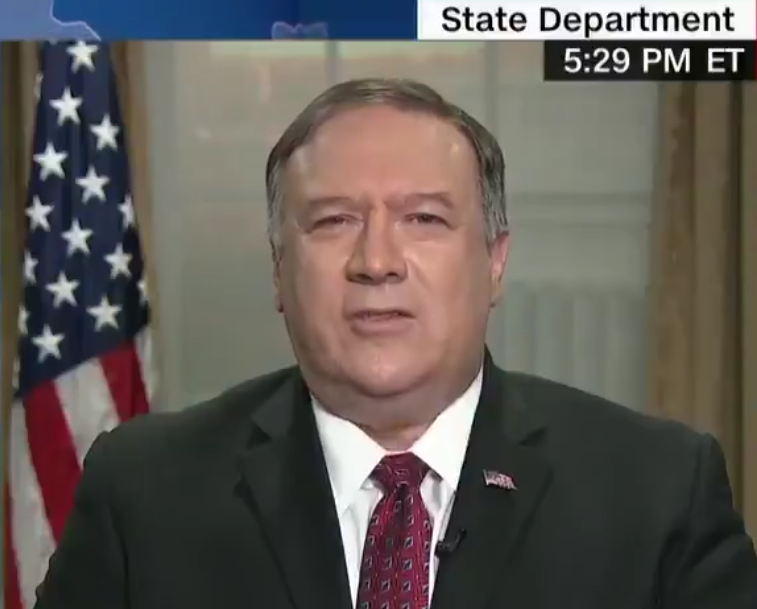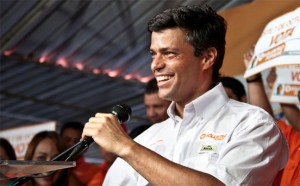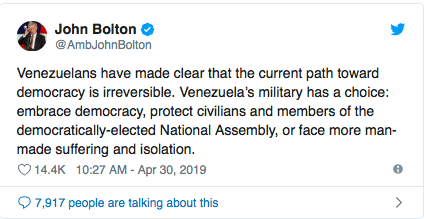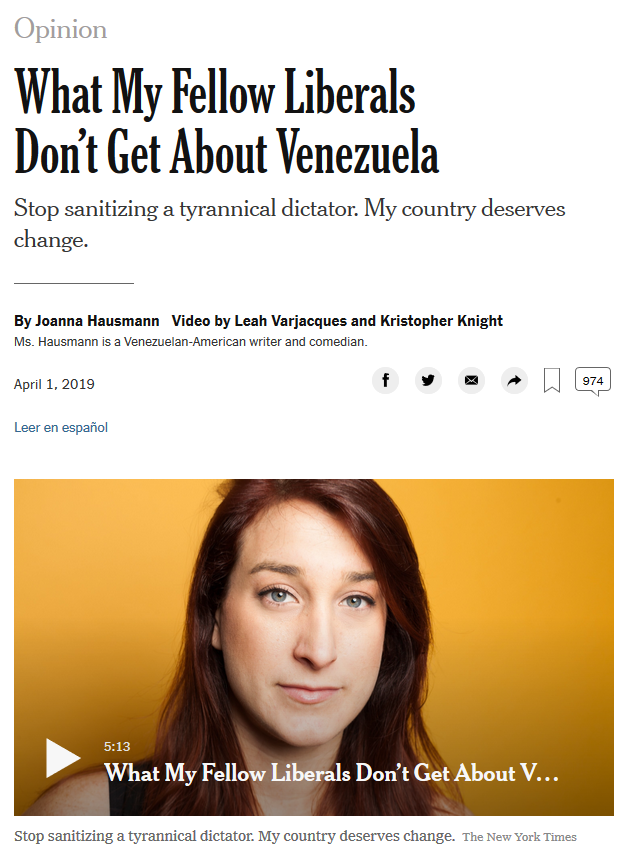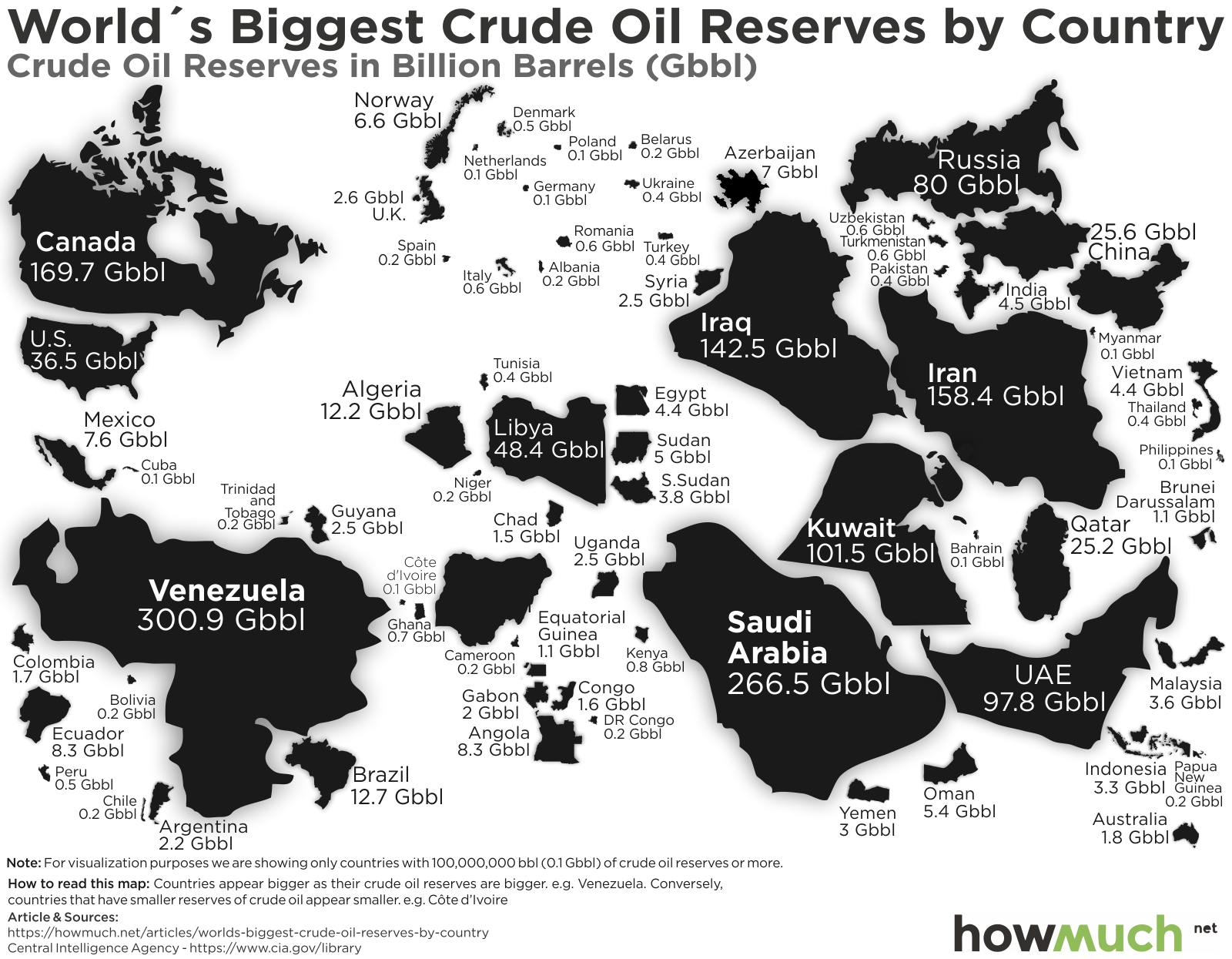This incisive article by Professor Henry Espiritu was first published by Global Research in November 2017
“And thou wilt find the nearest in friendship to the believers to be those who say, ‘We are Christians’. That is because there are priests and monks among them and because they are not proud.” (Al-Qur-an, Surah Maidah: 82)
Introduction: Context and Commitment
The current expansion in mass media and communications reveal more evidently that our world contains variety of cultures, races, religions, and ideologies. Despite globalization and its attendant efforts towards homogeneity, ours is still a pluralist world. As such, tolerance is a foundational notion and a very relevant conceptual and practical prerequisite in establishing a pluralistic society. In pluralism’s point of view, people living in a society with varied religious, cultural, and ideological commitments should enjoy equal rights and should not sacrifice their beliefs at the mercy of the hegemonic ideology of a particular State or of the dominant religion of the majority community.
In our highly globalized world, tolerance and amity are all the more needed for the survival, cohesion, and progress of its citizens.
The contemporary mass media portray Islamic societies to be intolerant of other’s religious and ideological persuasions. The purpose of this paper is not to examine whether the contemporary media is right or wrong in perceiving Islamic societies as intolerant. My aim in this essay is to show that authentic Islam—as contained in the pristine revelation of the Qur-an—promotes tolerance, harmony, and goodwill of all peoples despite their differences.
Professor Henry Espiritu (right)

In this paper, I want to reflect straight from the original source of Islamic tenets (i.e., the Qur-an) the tolerant attitude of Islam vis-à-vis religious, cultural, and ideological diversities found in human societies. Likewise, I will endeavor to show various thematic perspectives found in selected passages of the Qur-an that encourage tolerance and societal concord. Side by side with my exposition of authentic Islam’s framework of tolerance, I will likewise provide several historical instantiations of this “spirituality of tolerance” in the lives of selected Muslim savants and revered Islamic personalities of various epochs in their encounter with Christians.
I sincerely hope that by showing the tolerant and pluralistic pronouncements of the Qur-an, and the historical instantiations of tolerance manifested in the exemplary lives of these prominent Muslims as they relate with Christians, I will be able to encourage Muslims to fully practice and live-out the Islamic mandates of amity and inter-religious understanding in their daily lives. Moreover, I further hope that in this essay, I will be able to inform non-Muslims that genuine Islam—as contained in the Qur-anic revelation, in the model conduct of the Prophet, and in the exemplary lives of pious Muslim personages—is a very tolerant religion that acknowledges and respects the divergent beliefs and ideological views of others.
The Dynamics of Tolerance: Philosophical, Metaphysical, and Mystical Presuppositions
Firstly, let me briefly explicate my own conceptual framework and philosophical presuppositions in understanding tolerance. Tolerance presupposes plurality and diversity of identities. Pluralism further presupposes alterity or otherness, since diversity entails variety of identities and plurality of existing values. The opposite of pluralism is hegemony where one particular value is imposed and where there is an enforced totalization of expressions of life to make human values comply to a uniformed worldview and a set praxis. Now, tolerance can only exist in a pluralistic framework since pluralism celebrates in the difference of the “other”. Tolerance is a very important ethical value in the face of the alterity of the “other”. Tolerance therefore presupposes an “other” since without an “other”, there is nothing to tolerate at all. In hegemony, however, the “other” is swallowed and annihilated by the sheer imposition of uniformity and forcible totalization. Thus with the absence of the “other” in a hegemony, tolerance will also be non-existent—this is why all totalitarian and hegemonic societies are most intolerant of differences and dissenting views.
Secondly, I consider tolerance as spirituality. A person who can tolerate the “other” is able to see the unitive Source Who permits and wills these various differences and diversities as found in the world. This unitive Bond that permeates all diverse phenomena of creation and transcends multiplicities—the mystics termed, “the One God”. In the words of the Holy Qur-an:
“And your God and our God is One God. There is no god but He, the Beneficent, the Merciful… There is no contention between us and you. Allah will gather us together, and to Him is our eventual coming.” (Surah Baqara:163 and Surah Shuraa:15)
Therefore—for the Qur-an—God is both the Ultimate Source of these diversities and the Essential End of all varied cosmic entities. Spirituality or mysticism acknowledges God as the unifying Connectivity that deeply binds the whole of creation to Himself despite their apparent differences and multiplicities. Muslim and Christian mystics are well able to tolerate religious differences because in their inner beings, these mystics see the vision of the One, and this unitive vision enabled them to go beyond creedal and dogmatic differences. It is by this divine grace of an all-inclusive vision of the One that enables saints and mystics to tolerate the “otherness” of the other (See Frithjof Schuon, Understanding Islam. London: Mandala Books, 1964; pp. 13-18.).
Tolerance in dealing with others, particularly the religious “other” is spirituality because by tolerating differences, one acknowledges the divine Wisdom of God who wills that these differences be made manifest. By reflecting on this ineffable theological tension regarding the plurality or diversity of God’s creation and the essential oneness of creation in the Being of God, mystics of all religious traditions appreciate the mystery and spirituality of tolerance; an unfathomable and sympathetic understanding that is holistically related to a consciousness of divine unity manifesting in and through diversity. Tolerance permits us to experience the sympathetic feeling of divine inter-connectedness among diverse creatures in the divine immanence of the Creator who permits these differences.
My own prayerful reflections evidently reveal to me that authentic Islam, i.e., the Islam as expressed in the pristine pages of the Qur-an and in the exemplary conduct set forth by Prophet Muhammad—in contrast with the rigid and hegemonic “Islam” as interpreted by “extremist” exegeses or “fundamentalist” hermeneutics—clearly advocates pluralism and encourages tolerance in its relationship with the religious “other”. In the next subsections, we will examine how the Qur-anic understanding of pluralism is intimately connected to the spirituality of tolerance. We will also see how the Qur-anic discourse of tolerance is practically exemplified in the lives of selected Muslim saints in their encounter and dialogue with Christians.
The Qur-anic View of Pluralism and Its Relevance to an Islamic Understanding of Tolerance
The Qur-an is fully conscious of the pluralistic nature of human societies. Many Qur-anic passages describe the diverse expressions of life as found in human communities. Pluralism is therefore a fact, which the Qur-an accepts as the basic reality of our human existence. The Qur-an says:
“For every one of you We appointed a law and a way. And if Allah had pleased, He would have made you a single people, but that He might try you in what He gave you. So vie with one another in virtuous deeds. To Allah will all return, so He will inform you of that wherein you differed.” (Surah Maida:48; The Holy Qur-an: Maulana Muhammad Ali Translation)
The above passage is a very decisive proclamation supporting tolerance. The verse fully points out the pluralistic condition of humankind. The passage admits to the existence of societal and religious diversity characterizing human communities when it declares; “for everyone of you, We appointed a law and a way”. Notice that this verse says that our pluralistic situation is willed and permitted by God so as to test human communities so that each community will vie with each other in doing good deeds. It further says:
“And if Allah had pleased, He would have made you a single people, but that He might try you in what He gave you. So vie with one another in virtuous deeds”.
Surah Maida:48 is likewise a very relevant verse in understanding the nature of the Islamic understanding of tolerance. If God willed that this world contains socio-cultural and religious diversities (when He could have made the world a “single people”), and if God himself has a divine reason for allowing these diversities (so that each society will “vie with one another in virtuous deeds”); then humankind should strive to accept, tolerate, and appreciate the fact of our pluralistic world.
Good Will, Courtesy, and Mutual Respect: The Basic Ethical Pillars of Qur-anic Tolerance
Maulana Muhammad Ali Lahori (circa 1879-1951), was an eminent Pakistani scholar of Qur-anic and Hadith exegesis. He authored exhaustive and authoritative books of Qur-anicexegesis, collectively known in Urdu as Bayan-e Qur-an (Qur-anic Lectures) and a comprehensive commentary of the Prophetic Traditions, entitled The Manual of Hadith. Maulana Muhammad Ali Lahori strove to present Islam as a rational, tolerant, and forward-looking religion during the era of the British rule of then undivided India.
In this period of the British Raj, various Christian missionary groups representing different denominations compete for the conversion of Indians to Christianity. Seeing the zeal of these missionaries, Maulana Muhammad Ali began to reflect on the state of the Muslims in India. He re-evaluated the Indian appropriation of Islamic tenets and found out that the Muslims in India were enveloped with customs which were thought to be Islamic, but in reality, were products of obscurantism, and therefore devoid of Islamic significance.
Maulana Muhammad Ali likewise engaged the Christian missionaries in friendly dialogues to clarify common misconceptions of Islam. His scholarly book, The Religion of Islam, which was the result of these dialogic exchanges, show a very rational explication of Islam; at the same time fully cognizant of the Christian missionaries’ objections against Islam by responding to these objections using the Qur-an and Sunnah as bases of clarification. In all his writings, one can admire the profound respect that Maulana Muhammad Ali accorded to his interlocutors, both Christians and Muslims.
I will quote from his Urdu commentary of the Holy Qur-an on the necessity of courtesy (adab), good will (ahsan), and respect or honor (izzat) in dialoguing with others. Commenting on the Qur-anicayah (verse): “Call to the way of thy Lord with wisdom and goodly exhortation, and argue with them in the best manner” (Surah Nahl:125), Maulana Muhammad Ali had this to say:
“If we desire to establish communication with other religions and their followers, the first pre-requisite is good will (ahsan). We need good will because we have to be reminded that followers of other religions desire for our own good when they want to convert us. And we too, desire for their own good when we invite them to Islam. Everyone sincerely believes that his or her respective tenet is the truth. Thus, keeping in mind that every religion desires salvation, the Holy Book requires us to conduct our concourse with others in the best manner of etiquette (adab). In his inner heart, the other person who communicates to us his religion thinks that he is doing an act of piety.
Similarly, in Surah Ankabut:46, the Word of Allah reiterates its exhortation to concourse with the People of the Book, in the attitude of respect and courtesy, when it says: ‘And argue not with the People of the Book except by what is best… And say: We believe in that which has been revealed to us and revealed to you and our God and your God is One, and to Him we submit’. It is therefore with this innate intention of good will that our Holy Book requires us to establish friendly concourse with the followers of other faiths, in the spirit of courtesy and profound respect.” (See Mawlana Muhammad Ali’s subsequent commentary of Surah Nahl 125 and Surah Ankabut 46.)
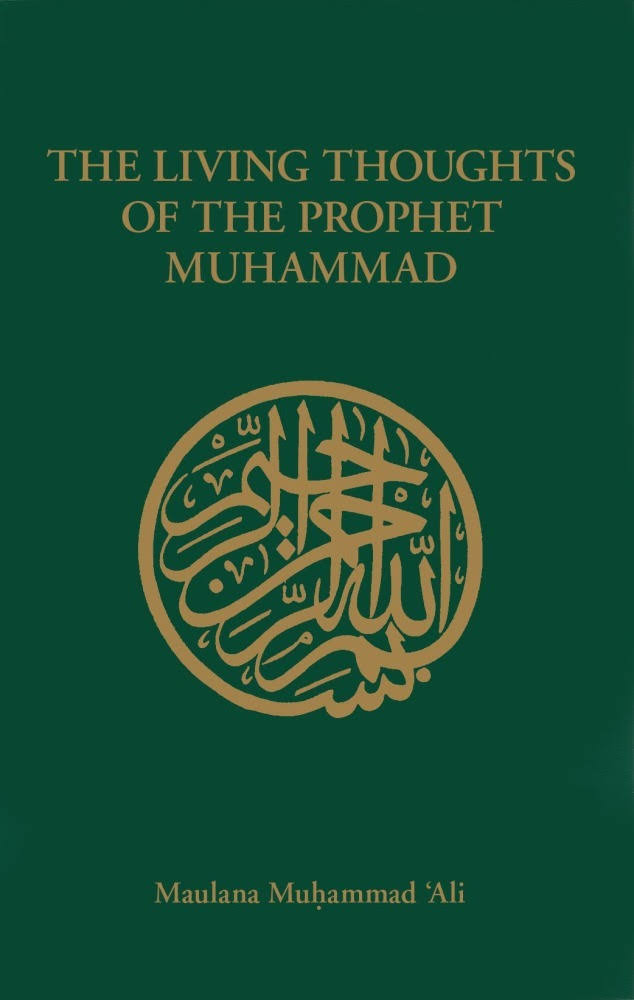
Maulana Muhammad Ali, in his encounters with Christian missionaries, was able to articulate and apply the ethical principles of dialogue and tolerance, which were already laid down by the Holy Qur-an (namely in Surah Nahl:125 and in Surah Ankabut:46). Maulana Muhammad Ali understood tolerance as something inherent in our being persons of good will; and that this divine awareness of good intention leads us to respect the viewpoint of the other person even if we do not subscribe to his creedal tenets. The verse in Surah Nahl:125 encourages Muslims to dialogue with the religious “other” in the spirit of sincere courtesy, profound sensitivity, and deep respect for each other’s differences, by granting a concordant presumption that the other’s intention in striving to convert another person is due to good will (i.e., for the “other’s” spiritual salvation).
Surah Maida: 48 as Potent Islamic Manifesto Supporting Tolerance
Maulana Muhammad Ali asserts that Surah Maida:48 is an explicit endorsement of pluralism and its attendant duty of tolerating the various diversities of humankind. I quote from Maulana Muhammad Ali’s exhaustive Qur-anic commentary to this particular passage:
“The appointment of a law and a way for everyone refers to the giving of different laws to different nations… Thus, the Holy Qur’an here recognizes the principle to which it refers frequently, that prophets were raised among every people (see Holy Qur’an 10:47; 13:7; and 35:24)… Man [sic] is placed above the whole of creation in that he has been granted discretionary powers so that he can choose to follow one path or another, as against the rest of creation, which must necessarily follow the laws to which it is subject. Hence led by that [God-given] discretion, men follow different ways, adopting different sects, whereas if man’s very nature had been so made as to make him unable to use his discretionary powers, all men [sic] would have been a single people, but then man’s better qualities, would not have been manifested.” (Maulana Muhammad Ali Commentary of the Holy Qur-an.Columbus, Ohio: Ahmadiyya Anjuman Ishaat Islam Lahore, 1998; pp.256.)
As commented by Maulana Muhammad Ali, Surah Maida:48 explicitly declares that Almighty God sent his messengers to diverse groups of people and gave these communities their respective commandments in keeping with the different circumstances of each community. The laws prescribed by God to the different communities ensure the holistic development of their respective people. The verse continues, “And if Allah had pleased, He would have made you a single people, but that He might try you in what He gave you. So vie with one another in virtuous deeds”. This verse clearly pointed out that if God so willed it, He can create a single community out of varied groups of people. Nevertheless, God planned that humankind be varied in its communitarian expressions.
God’s endowment of a pluralistic world is His grace to humanity. Our differences provide venues for existential celebration of life and of living: variety and diversity being the potent antidote to our humdrum existence. Each community has its own unique way of life, its own customs and traditions, its own laws. Nevertheless, no matter how diverse these ways of life are, it should be understood in the light of the Almighty’s life-affirming purpose in allowing such diversities, i.e., human flourishing. It is therefore clear from Surah Maidah:48 that although God can produce a uniformed world of totalities by imposing a single law for all communities, yet He prefers to create pluralistic communities so that humankind will learn the values of tolerance, amity, harmony, and fraternity.
Another aim of God in creating varied communities is to test human beings in the conduct of virtuous deeds. He tests the various societies if they can live amicably and cordially with each other despite their differences. The divergence in each society’s ways of life should not be a cause of disharmony and differences; instead, societal divergences should prod each community to vie with one another in the performance of virtuous conduct (Cf., Reza Shah Kazemi, The Metaphysics of Interreligious Dialogue. London: Institute of Isma’ili Studies, 2001; pp.5-7.).
The Qur-an insists that the best way of putting an end to religious, cultural, and ideological conflicts is to tolerate differences with openness and good faith. Each religious community should do righteous deeds according to their tenets; leaving to God the judgment as to which community is the best. The final section of the passage states:
“To Allah will all return, so He will inform you of that wherein you differed”.
The verse is very precise in stating that it should be left to God (and to God alone) in deciding the truth of the matters that peoples dispute. It is not for humans to pontificate which view is true and which is wrong. Vain and fruitless arguments as to which religious, ethical, and ideological point of view is right or wrong will only lead to communal fracas and infringement of societal concord. Likewise, the verse firmly admonishes human beings to contend with one another in good deeds by utilizing their own respective laws as bases of their righteous conduct.
God as the Ultimate Source of Divine Revelation: A Central Tenet in the Qur-anic Understanding of Tolerance
The prologue of Surah Maida:48 states, “And We have revealed to thee the Book [i.e., the Qur-an] with the truth verifying that which is before it [i.e., the previous scriptures]…and a guardian over it”. This verse is a strong proclamation in favor of tolerance and pluralism. The Qur-an is referred to as “guardian” of the truths revealed by earlier scriptures. Likewise, one of the roles of the Qur-an is “a verifier” of previous scriptures. According to Ustaz Abu Ya’qub Sijistani, a Fatimid theologian and philosopher of the tenth century AD, this verse implies that the scriptures of various religions may be different, but the Ultimate Source of all revealed scriptures is the One and Only God. Thus, scriptures of different faiths are based on Divine revelation.
The tolerant nature of Islam as a religion can be seen in this verse in that, the Qur-an takes it upon itself to be the confirmer, verifier, and guardian of truths revealed in earlier scriptures (Paul Walker, Abu Ya’qub al-Sijistani: Intellectual Missionary. London: I.B. Tauris Publishers, 1996; pp. 26-32, 58.).

Before elaborating further on Ustaz Abu Ya’qub al-Sijistani’s view of the Qur-an as the guardian and verifier of previous divinely revealed books and the implications of this Qur-anic guardianship to an Islamic framework of tolerance, a brief historical background of Ustaz Sijistani’s life is in order. Ustaz Abu Ya’qub Sijistani—although himself an Isma’ili Shi’a—maintained amicable relations with the orthodox Sunni majority during the period of the Fatimid Caliphate (i.e., 10th-11th century A.D.). To the dismay of the rabid Shi’as, Ustaz Sijistani forbade his disciples to curse the first three Caliphs of Islam (Khulafa-ar-Rashidin); warning them, that Prophet Muhammad lavished praise on these three Caliphs, and therefore, it is never right and against Islamic prudence to curse whom the Prophet had abundantly praised.
His endeavor to establish Sunni-Shi’a rapprochement was also matched by his spiritual and intellectual relationship with the Coptic Christians of Egypt, the Arab Orthodox Christians of Iraq, the Byzantine Christians of Anatolia, and the Jews. He studied the Torah in Hebrew and the New Testament in the Syro-Aramaic text. He often consulted Jewish rabbis and Orthodox Christian hermits and enquired from them regarding their interpretation of some obscure passages of the Bible. His encounters with Christianity and Judaism were indeed intellectually stimulating since Ustaz Sijistani wrote six (6) religio-philosophical treatises reflecting on his relations with Christianity and Judaism, not to mention the orthodox Sunni Islam. Sijistani’s main books, The Wellspring of Wisdom (Yanbu-al-Hikmat) and Proofs of Prophecy (Ithbat-un-Nubuwwat) were written to show that God is the ultimate Source of Revelation and that this divine Revelation is progressive, i.e., it is sent according to the measure of the spiritual preparedness of humankind to receive divine guidance. Ustaz Sijistani was therefore a perfect example of an “ecumenical Muslim”—if I may be permitted to coin such a term.
Let us now explicate on Sijistani’s understanding of progressive revelation and its implication to an Islamic perspective of tolerance. As per Ustaz Sijistani, the inclusive nature of the Islamic faith can be clearly observed in the Qur-an’s numerous narrations regarding the ministries of Jewish, Christians, and other pre-Islamic prophets. The Qur-an’s inclusion of the prophets of other religions preceding Islam is meant to illustrate the pluralistic and tolerant dimension of the Qur-anic Revelation. The list of prophets as found in the Qur-an was never meant to be exhaustive; it was meant to illustrate the extent of the universal chain of prophethood. Thus, we can safely assume that other religious communities that were not mentioned in the Qur-an are likewise included in the all-inclusive Qur-anic guardianship (Walker, Ibid, pp. 45-58, 110-112.).
Furthermore, Sijistani opined that the Qur-an fully acknowledges the different expressions of worship undertaken by different religions, while at the same time firmly holding to the Islamic expressions of worship (i.e., the five-times-a-day liturgical prayers, prescribed pilgrimage, Ramadhan fasting, etc.). In Surah Baqara:148 it is stated: “And everyone has a goal to which he turns (himself), so vie with one another in good works”. Abu Ya’qub al-Sijistani, interpreted the phrase, “everyone has a goal to which he turns” to signify the diverse spiritual communities and their different approaches of worship (Ibid, pp. 49-51.). Ustaz Sijistani, also pointed out that Surah Baqara:148 is very much related to the phrase in Surah Maida:48, viz; “For everyone of you We appointed a law and a way”.
The Qur-an on the Oneness of Humankind and Diverse Expressions of Human Cultures
The Qur-an, in many numerous passages explicitly proclaims the oneness of humankind. Humanity was “created from a single being” (Surah Nisah:1). All humans came from a single ancestry and living in the same homeland, earth (Surah Hujurat:13). Furthermore, Surah Baqara:213 says that the whole of humankind is essentially one in origin—from God, humankind’s Creator. God sent various messengers with their respective scriptures to guide the peoples of the world to righteous living. These prophets were sent to different places of the world and their revelations were suited to the varying milieus, mentalities, contextualities, situations, and circumstances of the peoples and societies in which they were being sent. However, instead of respecting other societies’ contextualities, people began to be divided and incessantly fight against each other. Surah Baqara:213 further states that God in giving His revelation to different communities did not intend that they fight each other; but that each communities respect each other’s differences.
The Qur-an balances its affirmation of the ontological oneness of humankind by equally highlighting on the divergent racial, linguistic, ideological, religious, and national identities of each society. God wills these identities; as the Qur-an plainly states, “And of His signs is the creation of the heavens and the earth and the diversity of your tongues and colors. Surely, there are signs in these for the learned” (Surah Rum:2). This passage acknowledges cultural differences as “signs” of God and must be duly appreciated as these “signs” serve as venues for each society’s expression of identity. Cultural differences are essential for establishing a community’s identity and these divergences should prompt peoples to celebrate each other’s cultural and national identities (See, Maulana Muhammad Ali’s commentary of Surah Baqara:213, Hujurat:13 and Maida:48; op.cit.). Therefore, the Qur-an undoubtedly recognizes cultural, religious, and societal diversities as being willed by Divine Providence; even as it equally affirms the essential unity and oneness of humankind.
Tolerance and the Diverse Liturgical Expressions of Worship Found in Other Faiths
As of this juncture, it is noteworthy to quote some Qur-anic passages that illustrate the practical dimensions of Islamic tolerance with respect to the different worship expressions of other faith-traditions. The Qur-an says:
“It is not righteousness that you turn your faces towards East or West; but righteous is the one who believes in Allah and the Last Day, and the angels, and the Book, and the prophets, and gives away wealth out of love for Him, to the near of kin, and the orphans, and the needy, and the wayfarer, and to those who ask, and to set the slaves free; and keeps up prayer, and pays the poor-rate [i.e., charity]: and the performers of their promise when they make a promise, and the patient in distress and affliction and in the time of conflict [adversities]. These are they who are truthful; and these are they who keep their duty.” (Surah Baqara:177; Maulana Muhammad Ali Translation.)
The great master of Islamic mysticism, Hazrat Shaykh-al-Akbar Muhaiyuddin Ibn Arabi (circa 1164-1240 AD), in his Sufi treatise, Bezels of Wisdom (Fusus al-Hikam) provided a very universal and inclusive interpretation of the above passage, showing the tolerant nature of Islamic Sufism that Ibn Arabi espoused. Before discussing Ibn Arabi’s explanation of the above-mentioned passage, I feel that it is beneficial for our understanding to describe briefly his historical contextuality. Ibn Arabi’s tolerant and pluralistic approach to Islamic spirituality can best be gleaned in his oft-quoted pronouncement:
“My heart is open to every form: it is a pasture for ecstatics, and a cloister for Christian monks, a temple for idols, the Mecca for the monotheists, the tablet for the Torah and the bookstand of the Qur-an. I embrace the religion called ‘Love’; I go where my Beloved’s caravan asks me to go. My religion is the creed of Love.” (Shahabuddin Maliki, Light from the Sayings of Shaykh Ibn Arabi. Decca, Bangladesh: Markaz Towheedi, 1977; p.63.)
Arabi’s frequent discussions and meetings with Jewish and Christian philosophers and mystics may have influenced his all-inclusive and panentheistic approach to understanding Ultimate Reality (wahdat-ul-wujud). Ibn Arabi’s homeland, Andalusia, a cosmopolitan region in Spain was ruled during Ibn Arabi’s time by the extremely tolerant Umayyad sultans. The emirs of Andalusia encouraged learning and supported all educational institutions, whether Muslim, Christian or Jewish. It was during this period that Christians all over Europe flocked to Muslim Spain to study Greek philosophy as mediated by the Arabic textual sources. Likewise, it was in Muslim Spain where Jews from all parts of Europe and the Mediterranean took refuge from pogroms that greatly diminished their ranks. Ibn Arabi’s Islamic Andalusia ruled by the enlightened Umayyads offered an atmosphere of intellectual freedom—an atmosphere that was so different from the rest of Europe where inquisitions and religious persecutions were the order of the day (See Oliver Leaman, A Brief Introduction to Islamic Philosophy. Oxford: Polity Press, 1999; pp. 158-164.). This historical context contributed to Ibn Arabi’s universal and all embracing approach to Islamic mysticism.
Now let us come to Ibn Arabi’s inclusivist exegesis of Surah Baqara:177 and how this exegesis conduces to an Islamic spirituality of tolerance. Commenting on the above-mentioned verse, Ibn Arabi says:
“Beware of being bound up by a particular creed and rejecting others as unbelief. Try to make yourself a prime matter for all forms of religious beliefs. God is greater and wider than to be confined to one particular creed to the exclusion of others. For He Himself says: ‘To whichever direction you turn, there is the Face of God’. God is much greater, wider and deeper than our religious conceptions.” (See Oliver Leaman, A Brief Introduction to Islamic Philosophy. Oxford: Polity Press, 1999; pp. 158-164. )
Ibn Arabi admits that although in Islam, there exists a specific direction and prescribed liturgical postures by which a Muslim faces when praying, yet for him, the Qur-an equally acknowledges with respect the various directions and gestures of prayer adopted by other religions in their worship. More importantly, for Ibn Arabi, Surah Baqara:177 encourages religious pluralism and tolerance by going beyond (i.e., transcending) the ritual demands of different ceremonial expressions of worship and focusing instead on the importance of humane character, viz, compassion towards others and persevering faith in the midst of trials and difficulties (See, Henry Bayman, The Station of No Station: Open Secrets of the Sufis. Berkeley, California: North Atlantic Books, 2001; pp. 166, 206.). Ibn Arabi explained that the divine purpose of the various prescribed acts of worship is for the spiritual education of humankind, aside from the avowed aim of glorifying God. For him, more than the outward manifestations of piety, the crucial intention of the Qur-an is for the Islamic Ummah(community) to produce proper human beings who are sensitive to the needs of others. The Qur-an endeavors to create compassionate and “humane” persons who act with benevolence and equanimity to everybody with no regard whatsoever to racial, cultural, religious, or ideological differences (Ibid, pp. 97-98, 103.).
Instantiations of Tolerance from the Life of the Prophet of Islam and His Companions
The Qur-an clearly reveals that, “all the children of Adam are equally honored” by God (See, Surah Bani-Israil:70). The Qur-an also takes an all-inclusive humanistic view in its understanding of justice and equality among all peoples. When it comes to judging actions that either benefit or harm humanity, the Qur-an does not distinguish between Muslims and non-Muslims. As pointed out in Surah Nisah:123-124,
“It will not be in accordance with your vain desires [i.e., Muslims], nor the vain desires of the People of the Book [i.e., Jews and Christians] that can prevail. Whoever does evil will be requited for it… And whoever does good deeds, whether male or female—these will enter the Garden and they will not be dealt with a whit unjustly.” (Maulana Muhammad Ali Translation.)
The Qur-an further affirms; “so he who does an atom’s weight of good will see it. And he who does an atom’s weight of evil will see it” (Surah Zilzal:7-8.). According to the Qur-an, God does not consider a person’s dogmatic or creedal commitment when rendering judgment of an action. Everyone will be given their just recompense based on one’s deeds and not because of one’s religious adherence.
Furthermore, the Qur-an exhorts Muslims to respect places of worship of other faith-traditions and to ensure that these will be protected and safe from acts of vandalism and destruction. Surah al-Hajj:40 says; “And if Allah did not repel some people by others, cloisters, and churches, and synagogues, and mosques in which the name of Allah is much remembered would have been pulled down” (Maulana Muhammad Ali Translation.).
The abovementioned verse is very explicit in enjoining Muslims to sacrifice even their very own lives to defend the sanctity of churches and synagogues, and not just mosques. Interestingly, this particular passage avers that whether in church, synagogue or mosque, God’s name is “commemorated in abundant measure” in all these places of worship (Cf., Muhammad Hamidullah, Islam: An Introduction. Lahore: Kitab Islami Wakf, 1979; pp.34-35. See also Kazemi, op.cit., p.12.). Here, we can find that the Qur-an did not make any distinction between shrines of worship—it acknowledges the sacredness of places of worship where God’s name is celebrated with reverence; no matter what faith-tradition these shrines belong.
The Qur-an solemnly affirms, “there is no compulsion in religion” (Surah Baqara:256). The Qur-an is very keen in preserving freedom of conscience and freedom of belief—two crucial elements which are at the heart of tolerance. In this connection, a narration of two episodes in the life of the Prophet Muhammad is very pertinent in order to show that Islam fully respects the freedom of peoples to practice their own faith. When the people of Medina accepted the Prophet as their lawmaker and chief governmental executive, the Prophet himself immediately asked his scribes to write a declaration assuring the freedom of Jews and Christian residents of Medina and Najran to practice their faith. Likewise, when Christian monks and priests from Abyssinia came to Medina to see the Prophet, they inquired where they can hold their Eucharistic service (since they were still in Medina on a Sunday), the Prophet Muhammad gladly offered half of the space of his masjid (i.e., the first masjid built by the Prophet’s own hands) to the Christian priests for their liturgy. The priests tearfully thanked the Prophet for his hospitality, munificence, and cordial act of tolerance by offering and allowing them to hold their Divine Liturgy in his masjid (See, Maulana Muhammad Ali, The Religion of Islam. Columbus, Ohio: Ahmadiyya Anjuman Isha’at Islam Lahore, 1990; pp.281-291. For numerous instances showing the Prophet Muhammad’s tolerance and concordant treatment to non-Muslims particularly Christians and Jews, see also, Mumtaz Ahmad Faruqui, Anecdotes from the Life of Prophet Muhammad. Columbus Ohio: Ahmadiyya Anjuman Ishaat Islam Lahore, 1997; pp.18-19, 35-37, 40-43.).
In keeping with the example of the Prophet Muhammad, the second Caliph of Islam, Hazrat Umar al-Farooq, assured the delegation of Coptic and Orthodox Christians that their churches, convents, and monasteries were to be protected and to be held inviolable by the Islamic State. The same Caliph Umar climbed by foot to Mount Sinai, Egypt to sign a treaty guaranteeing the safety of the monks and nuns of St. Catherine’s monastery. During this visit, the Caliph gave five thousand dirhams for the repair of the monks’ convent and chapel. The trustworthy Arab historian, At-Tabari narrated that the call for the noon prayer once overtook Caliph Umar while he was having consultations with the Orthodox Christian patriarch of Jerusalem at the Church of the Holy Sepulchre. The kind patriarch offered Caliph Umar to pray inside the church premises. The Caliph gently declined the patriarch’s offer saying that he was afraid that future Muslims might claim the church for themselves on account of the fact that the second Caliph of Islam prayed his noon prayer inside it. Caliph Umar then went out of the church and prayed at a vacant yard nearby (Cf., Hafsah Dawud Zikri, The Exemplary Precedents of our Righteous Sunni Ancestors. Pakpattan, Pakistan: Daawat-e Irshad, 1963; pp.68-85.). These historical instances and many others show the extent of amity, tolerance, and concordance that the Companions of the Prophet Muhammad afford to Christians. The continued existence of Arab, Coptic, Armenian, Greek, and Kurdish Christian communities in the Middle East and the marked presence of churches and convents in these Islamic realms give witness to the tolerant attitude of authentic Islam to the religious “other”.
Epilogue: Acceptance of “the Other” as Foundational Basis of an Islamic Spirituality of Tolerance
The Qur-an is very explicit in its pronouncement that non-Muslims should be given the right to worship based on the prescriptions of their own scriptures. As already mentioned in this paper, non-Muslims were given their civil, political, and religious rights during the time of the Prophet Muhammad. After the Prophet’s demise, the Holy Companions and the immediate Caliphs of the Prophet made numerous provisions so that the rights of Jews and Christians will be acknowledged and respected. Tolerance towards non-Muslims were also implemented by various Islamic monarchs like the pious Umayyad Caliph, Umar ibn Abdul Aziz; the Abbasid Caliph, Harun-al-Rashid; the just Sultan of Palestine, Saladdin Ayyubi; the Mughal Sultan Akbar; the Ottoman emperors, Fatih Mehmet and Kanooni Suleyman; and the emirs of the Moorish courts of Cordova and Grenada. These Islamic monarchs not only tolerated non-Muslims, much more, they employed Jews, Christians, and even Hindus in their administration, supported their respective places of worship, clergies, and educational institutions. These non-Muslims were accepted with dignity and treated with respect and at par with the Muslim citizens.
Authentic Islam based on the Qur-an and as practiced by the Prophet and his companions are not against the promotion of a pluralist egalitarian society that guarantees tolerance and respect to all religious communities within the society. The Qur-an recognizes religious diversity not only as a basic reality of human existence but also as a venue for humanity’s spiritual development (Cf., Surah Maida:48.). It is indeed very regrettable that in our contemporary times, most of the so-called Muslim nations are perceived as lagging behind in fulfilling the spirit of tolerance as plainly expressed in the Qur-an and the Tradition (Sunnah) of the Prophet. It is equally lamentable that political and religious extremism failed to see the pluralistic, concordant, and tolerant dimension of Islam as found in the Qur-anictexts and in the conduct of the Prophet.
As amply shown in history, it cannot be denied that there were many instances of bloody conflicts between Christians and Muslims and that atrocities and violence can be equally attributed to both sides. The era of the Crusades during the Middle Ages and the more recent phenomenon of Western colonization of Muslim lands painted a different picture of Christianity in the perceptions of Muslims—a grim and greedy “Christianity” which is far from the peace-loving Christianity of Christ and of the Gospels. Similarly, basing their perceptions on the Western media’s skewed descriptions of Muslims and the intolerance of some Islamic movements, Christians perceived a rigid and inflexible Islam—an “Islam” very different from the tolerant and inclusive Islam of the Holy Qur-an. It is high-time now for both Muslims and Christians to move past these historical contingencies—contingencies that were political, economic, and pragmatic in nature; which had little or even nothing to do with the essential spiritual and religious contents of both faiths as expressed in their respective Scriptures (Jean Rene Milot, Muslims and Christians: Enemies or Brothers? New York: Alba House, 1997; pp. 31.). Indeed, it is high time now for both Muslims and Christians to go back to their respective Scriptures and be nourished by the precepts of tolerance, understanding, and amity enjoined by both the Bible and the Qur-an. In so doing, both the largest and the second largest religions of the world will be able to contribute actively towards achieving world peace.
It is likewise imperative for academicians engaged in Muslim-Christian dialogue and researchers of Islamic political philosophy to work out theoretic and praxis in pursuance to the Qur-anic vision of tolerance and amity, by taking into consideration present realities of our pluralistic world. There is no contradiction in accepting the truth of ones’ own religious and ideological perspective and in tolerating or respecting the beliefs of others. Similarly, the Qur-anic belief in the ontological oneness of humanity does not contradict the pragmatic reality that humankind’s expressions of culture, spirituality, and political ideology are varied and diverse. Authentic Islam as found in the Qur-an respects the freedom of conscience of every individual; which includes the right to practice one’s own religious, cultural, ethnic, and ideological commitments. By paying careful and prayerful reflection to what the Qur-an says regarding tolerance, coupled with the faithful adherence to the Qur-anic values of amity and harmony amidst differences, Muslims and non-Muslims will be able to live a tranquil, serene, and secure life—a life of dignity and justice by accepting with openness and good faith each other’s differences. May this hope become a Reality for all Muslims and non-Muslims alike. Insha-Allah (God willing)!
References
Ali, Abdullah Yusuf. The Holy Qur-an: Text, Translation and Commentary (3rd ed.). Kashmiri Bazar, Lahore: Shaikh Muhammad Ashraf, 1978.
Ali, Maulana Muhammad. The Holy Qur-an: Translation and Commentary. Columbus, Ohio: Ahmadiyyah Anjuman Ishaat Islam Lahore, 1998.
_______. The Religion of Islam. Columbus, Ohio: Ahmadiyyah Anjuman Ishaat Islam Lahore, 1990.
Bayman, Henry. The Station of No Station: Open Secrets of the Sufis. Berkeley, California: North Atlantic Books, 2001.
Ghulam-Ahmad, Hazrat Mirza. Paigham-e-Sulh: Letters of Peace. Suva, Fiji: Ahmadiyya Anjuman Isha’at Islam Lahore-Fiji, 1972.
Hamidullah, Muhammad. Islam: An Introduction. Lahore: Kitab Islami Wakf, 1979.
Kazemi, Reza Shah. The Metaphysics of Interreligious Dialogue. London: Institute of Isma’ili Studies, 2001.
Leaman, Oliver. A Brief Introduction to Islamic Philosophy. Oxford: Polity Press, 1999.
Maliki, Shahabuddin. Light from the Sayings of Shaykh Ibn Arabi. Decca, Bangladesh: Markaz Towheedi, 1977.
Milot, Jean Rene. Muslims and Christians: Enemies or Brothers? New York: Alba House, 1997.
Schuon, Frithjof. Understanding Islam. London: Mandala Books, 1964.
Walker, Paul. Abu Ya’qub al-Sijistani: Intellectual Missionary. London: I. B.Tauris Publishers, 1996.
Zikri, Hafsah Dawood. The Exemplary Precedents of our Righteous Sunni Ancestors. Pakpattan, Pakistan: Daawat-e Irshad, 1963.
***
Prof. Henry Francis B. Espiritu is Associate Professor-VI of Philosophy and Asian Studies at the University of the Philippines (UP), Cebu City. He was former Academic Coordinator of the Political Science Program at UP Cebu from 2011-2014. He was also the former Coordinator of Gender and Development (GAD) Office at UP Cebu. His research interests include Islamic Studies particularly Sunni jurisprudence, Islamic feminist discourses, Islam in interfaith dialogue initiatives, Islamic environmentalism, Classical Sunni Islamic pedagogy, the writings of Imam Al-Ghazali on pluralism and tolerance, Turkish Sufism, Muslim-Christian dialogue, Middle Eastern affairs, Peace Studies and Public Theology.

